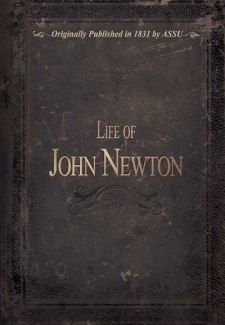If you look up an indexed list of phobias (which every sane person does daily, right?!?)…there you will notice what seems to me a strange phobia: euphobia. Euphobia is the fear of hearing good news. Strangely absent from the list is a fear of hearing bad news. Apparently, fearing bad news is perfectly acceptable.
That’s good for me that this particular phobia did not make the list, because I’m a badnewsaphobe. Unfortunately for me though, it does make God’s list of junk that’s not fitting for those living in redemption instead of rebellion. And that stings.
My badnewsaphobia is crippling. It’s probably why I seldom put myself out there as a writer—and it’s taken a good amount of encouragement from my wife to pursue anything of significance as a writer. I could bore you with paragraphs explaining all of the areas of my life that have been crippled by my badnewsaphobia. Being stupidly afraid of bad news is life altering.
It is also idolatry.
For the righteous will never be moved;
he will be remembered forever.
He is not afraid of bad news;
his heart is firm, trusting in the LORD.
(Psalm 112:6-7 ESV)
A heart that is afraid of bad news is one that is not firm and is not trusting in the LORD. That, sadly, describes me.
What Does Redemption Look Like for a Badnewsaphobe?
I am convinced that Jesus is stronger than my imperfections. I am also convinced that He graciously leads me to texts like this one not because He wants to point and laugh, show my insufficiencies, and leave me in my own hands to fix it. The LORD is graciously exposing my badnewsaphobia for the purpose of redeeming me. So, what does redemption in this area look like?
My response to potential bad news is passivity and escape. Any time there is something that could potentially end with bad news I run the other way. As Paul Tripp would say, that is my thorny response.
If I want to live in redemption in this area it means that I have to see a clearer picture of the Father and His provision in Jesus. According to Psalm 112 a firm heart comes from “trusting in the (covenant keeping) LORD”. In the life of the believer God makes bad news good. He makes the bitter to be sweet. Though things are difficult, painful, heart-wrenching, and at times life-shattering to vessels of clay the Lord knows our frame, He remembers that we are but dust, and He graciously works together all things for our good. No news is ultimately bad when, through Jesus, the LORD is your friend.
Therefore, I will respond by believing this promise. I will repent of trusting in my own futile and shameful ways of trying to protect myself of bad news. I will repent of thinking that my feet are secure by my own doing and instead I will put my hope and trust in the “LORD GOD who is an everlasting rock”.
And I’m going to start doing things that could fall flat on their face. I’m going to do things that may end in “bad news” but all the while I will trust that God makes all bad news good.
---
LORD, forgive me for trying to secure peace for myself. It has never worked. I have become crippled by my own self-righteous efforts of preserving myself from “bad news”. I have made good news bad. You make bad news good. I am desperately in need of your grace. Without grace I will go back to my shameful ways of self-preservation. Conquer my badnewsaphobia with the good news of the gospel. May I rest in Jesus.
 Amazing grace how sweet the sound…
Amazing grace how sweet the sound… ht balance of enough, tears, whining, and solid behavior to merit such an awesome gift.
ht balance of enough, tears, whining, and solid behavior to merit such an awesome gift. 

 as much as the infinitesimal pause before the bomb drops. In that second, which seems to last a millennium, my mind races to predict what darkness—once hidden in the unknown—will now be birthed into light.
as much as the infinitesimal pause before the bomb drops. In that second, which seems to last a millennium, my mind races to predict what darkness—once hidden in the unknown—will now be birthed into light.